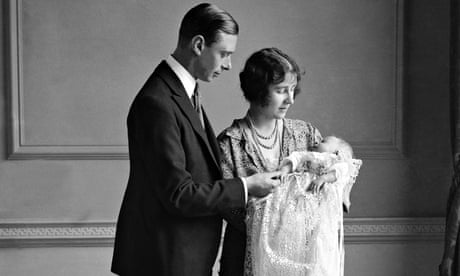The Church of England is to introduce a simplified baptism service which omits mention of the devil after clergy who had tried it last year welcomed the move.
The church's General Synod, meeting in York next month, will be asked to approve the provisional use of a shorter, clearer liturgy which is meant to make it easier for families who have no experience of church.
The synod's meeting will be dominated by the attempt to clear the last obstacles preventing women from becoming bishops. The opponents, who managed to muster a blocking majority among the laity three years ago, have been pressured, flattered, and tempted with office by the archbishop of Canterbury and it is now almost certain that the legislation will pass, which would make it possible for a woman to become a bishop this winter.
Among the compromises on offer, conservative evangelicals who reject the notion that women should ever have authority over men have been promised that one of their number will become a bishop soon.
Among the other business, the revision of the baptism service will attract most attention. The present modern language version asks parents whether they will "reject the devil and all rebellion against God", "renounce the deceit and corruption of evil" and "repent of the sins that separate us from God and neighbour". In the new version they are asked only to say that they "turn away from sin" and "reject evil".
The Church of England is making the changes to adapt to a population which increasingly has no Christian background at all. Where once the pattern was for couples to get married, live together, have a baby, and then have it baptised at about six weeks, they are increasingly living together, having babies, and then, after a couple of years, getting married and having the children baptised at the same time.
As a result, there is a need for a shorter, simpler service that will not put off people who are offended to be addressed as sinners. In the traditional service, which was in use for around 400 years, from 1662 to the 1960s, the priest would ask the parents and godparents: "Dost thou, in the name of this Child, renounce the devil and all his works, the vain pomp and glory of the world, with all covetous desires of the same, and the carnal desires of the flesh, so that thou wilt not follow nor be led by them?"
Where the traditional prayer book charge on the parents was that they should "call upon him to hear Sermons … [and] provide that he may learn the Creed, the Lord's Prayer and the Ten Commandments in the vulgar tongue, and all other things which a Christian ought to know and believe to his soul's health", in the proposed new liturgy they are told: "Here, we shall do all that we can to ensure that there is a welcoming place for you. We will play our part in helping you guide these children along the way of faith."
The change reflects a much wider cultural change within the Church of England as well as in the society around it. It must now compete for membership with other Christian churches in an unprecedented way and, above all, with apathy and a society which sees no pressing reason to spend Sunday mornings or any other time in church.
